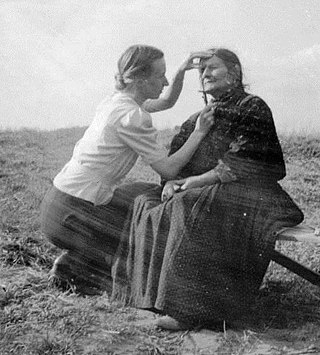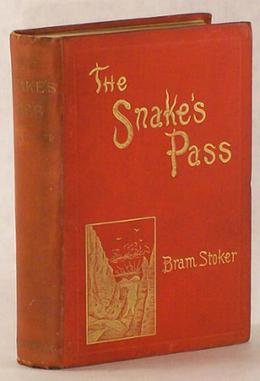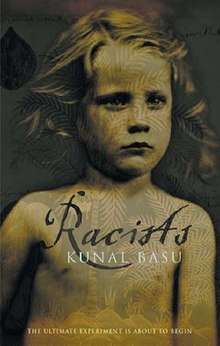John Philippe Rushton was a Canadian psychologist and author. He taught at the University of Western Ontario until the early 1990s, and became known to the general public during the 1980s and 1990s for research on race and intelligence, race and crime, and other purported racial correlations.
Racism is discrimination and prejudice against people based on their race or ethnicity. Racism can be present in social actions, practices, or political systems that support the expression of prejudice or aversion in discriminatory practices. The ideology underlying racist practices often assumes that humans can be subdivided into distinct groups that are different in their social behavior and innate capacities and that can be ranked as inferior or superior. Racist ideology can become manifest in many aspects of social life. Associated social actions may include nativism, xenophobia, otherness, segregation, hierarchical ranking, supremacism, and related social phenomena. Racism refers to violation of racial equality based on equal opportunities or based on equality of outcomes for different races or ethnicities, also called substantive equality.
White supremacy is the belief that white people are superior to those of other races and thus should dominate them. The belief favors the maintenance and defense of any power and privilege held by white people. White supremacy has roots in the now-discredited doctrine of scientific racism and was a key justification for European colonialism.

The racial policy of Nazi Germany was a set of policies and laws implemented in Nazi Germany under the dictatorship of Adolf Hitler, based on pseudoscientific and racist doctrines asserting the superiority of the putative "Aryan race", which claimed scientific legitimacy. This was combined with a eugenics program that aimed for "racial hygiene" by compulsory sterilization and extermination of those who they saw as Untermenschen ("sub-humans"), which culminated in the Holocaust.
Supremacism is the belief that a certain group of people is superior to all others. The supposed superior people can be defined by age, gender, race, ethnicity, religion, sexual orientation, language, social class, ideology, nationality, culture, or belong to any other part of a particular population.
The concept of race as a categorization of anatomically modern humans has an extensive history in Europe and the Americas. The contemporary word race itself is modern; historically it was used in the sense of "nation, ethnic group" during the 16th to 19th centuries. Race acquired its modern meaning in the field of physical anthropology through scientific racism starting in the 19th century. With the rise of modern genetics, the concept of distinct human races in a biological sense has become obsolete. In 2019, the American Association of Biological Anthropologists stated: "The belief in 'races' as natural aspects of human biology, and the structures of inequality (racism) that emerge from such beliefs, are among the most damaging elements in the human experience both today and in the past."
Scientific racism, sometimes termed biological racism, is the pseudoscientific belief that the human species can be subdivided into biologically distinct taxa called "races", and that empirical evidence exists to support or justify racism, racial inferiority, or racial superiority. Before the mid-20th century, scientific racism was accepted throughout the scientific community, but it is no longer considered scientific. The division of humankind into biologically separate groups, along with the assignment of particular physical and mental characteristics to these groups through constructing and applying corresponding explanatory models, is referred to as racialism, race realism, or race science by those who support these ideas. Modern scientific consensus rejects this view as being irreconcilable with modern genetic research.
Kenneth Bancroft Clark and Mamie Phipps Clark were American psychologists who as a married team conducted research among children and were active in the Civil Rights Movement. They founded the Northside Center for Child Development in Harlem and the organization Harlem Youth Opportunities Unlimited (HARYOU). Kenneth Clark was also an educator and professor at City College of New York, and first Black president of the American Psychological Association.
The Pioneer Fund is an American non-profit foundation established in 1937 "to advance the scientific study of heredity and human differences". The organization has been described as racist and white supremacist in nature. The Southern Poverty Law Center classifies the Pioneer Fund as a hate group. One of its first projects was to fund the distribution in US churches and schools of Erbkrank, a Nazi propaganda film about eugenics.

The Snake's Pass is an 1890 novel by Bram Stoker. It centers on the legend of Saint Patrick defeating the King of the Snakes in Ireland, as well as on the troubled romance between the main character and a local peasant girl. The Snake's Pass was Stoker's second imperial fiction novel, and was first published in the United Kingdom in 1890. The novel is a precursor to Stoker's Dracula.

A lawn jockey is a statue depicting a man in jockey clothes, intended to be placed in front yards as hitching posts, similar to those of footmen bearing lanterns near entrances and gnomes in gardens. The lawn ornament, popular in certain parts of the United States and Canada in years past, was a cast replica, usually about half-scale or smaller, generally of a man dressed in jockey's clothing and holding up one hand as though taking the reins of a horse. The hand sometimes carries a metal ring and, in some cases, a lantern, which may or may not be operational.

Iggie's House is a 1970 young adult novel by Judy Blume. The story concerns Winnie, whose best friend Iggie has moved away. The new family moving into Iggie's house are the first African-American people in the neighborhood. While Winnie is quick to make friends with the new kids, she realizes that some people, possibly including her own parents, have trouble seeing past a person's color.
Racial passing occurs when a person who is classified as a member of a racial group is accepted or perceived ("passes") as a member of another racial group. Historically, the term has been used primarily in the United States to describe a black or brown person or of multiracial ancestry who assimilated into the white majority to escape the legal and social conventions of racial segregation and discrimination. In the Antebellum South, passing as white was a temporary disguise used as a means of escaping slavery. Other instances include cases of Jews in Nazi Germany attempting to pass as "Aryan" and non-Jewish to escape persecution.

The Possession of Joel Delaney is a 1972 horror film directed by Waris Hussein and starring Shirley MacLaine and Perry King. It is based on the 1970 novel of the same title by Ramona Stewart. The plot follows a wealthy New York City divorcee whose brother becomes possessed by a deceased serial killer who committed a series of gruesome murders in Spanish Harlem.
Conduct books or conduct literature is a genre of books that attempt to educate the reader on social norms and ideals. As a genre, they began in either the High Middle Ages or the Late Middle Ages, although antecedents such as The Maxims of Ptahhotep are among the earliest surviving works. Conduct books remained popular through the 18th century, although they gradually declined with the advent of the novel.

Kunal Basu is an Indian author of English fiction who has written five novels – The Opium Clerk (2001), The Miniaturist (2003), Racists (2006), The Yellow Emperor's Cure (2011) Kalkatta (2015) and Sarojini’s Mother (2020). The title story of his only collection of short stories, The Japanese Wife (2008), was made into a film by the Indian filmmaker Aparna Sen. Basu has also written four Bengali novels – Rabi-Shankar (2016), Bairer Dorja (2017), Tejoswini O Shabnam (2018) and Angel(2020)

The Wind of Change is a 1961 British drama film directed by Vernon Sewell and starring Donald Pleasence, Johnny Briggs and Ann Lynn. Taking its title from the famous "Wind of Change" speech given by British prime minister Harold Macmillan in South Africa in February 1960, it is one of the earliest British films to tackle race as an issue, focussing on disenchanted working-class white youth finding an outlet for their frustrations in racial hatred. The film is set around the coffee bars and homes of the Notting Hill district of West London, scene of the notorious 1958 Notting Hill race riots.

Racism has a long history in the United Kingdom and includes structural discrimination and hostile attitudes against various ethnic minorities. The extent and the targets of racism in the United Kingdom have varied over time. It has resulted in cases of discrimination, riots and racially motivated murders.

The Dirty Girls Social Club is a 2003 novel by Alisa Valdes-Rodriguez. Valdes-Rodriguez later wrote a sequel titled Dirty Girls on Top, which was published in 2008. The book is also credited with launching a new movement in Chicano literature and inspiring a series of "chick lit" novels about Latina women dubbed "Chica lit."

Mamie Phipps Clark was a social psychologist who, along with her husband Kenneth Clark, focused on the development of self-consciousness in black preschool children. Clark was born and raised in Hot Springs, Arkansas. Clark received her post-secondary education at Howard University, and she earned her bachelor's and master's degrees there.










